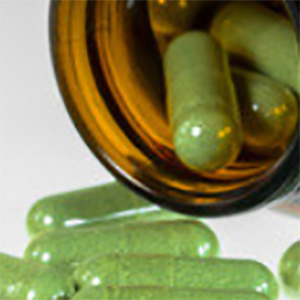
Dr. Graham discusses his thoughts, practices, and opinions about supplements and supplementation in this video. Written transcript provided
below the video player and related items.
Additional Resources:
- Everything About Nothing by Dr. Graham
- Nutrition: It’s NOT Just About Food, Part 1 by Dr. Graham
- Nutrition: It’s NOT Just About Food, Part 2 by Dr. Graham
- The Challenges of Going on a Raw Food Diet by Dr. Graham
- The Body Beautiful: Part I of II by Dr. Graham
- The Body Beautiful: Part II of II by Dr. Graham
- Nutrition and Athletic Recovery – Part I of II by Dr. Graham
- Do You Find This Stimulating? by Dr. Graham
- Fitness: Simple Answers to Common Questions by Dr. Graham
- Medical and Nonmedical Models of Health by Dr. Graham
- Enzymes: Are They for Real? by Dr. Graham
- Dietary Supplements: What You Need to Know by the Office of Dietary Suppliments, National Institutes of Health (NIH), U.S. Department of Health & Human Services
- Related Self-Study Item: Raw Nutritional Science, Part 1
Transcript:
Hi, Dr. Doug Graham here, author of the 80/10/10 Diet. I just want to talk with you a little bit today about the way I view supplements and supplementation versus the way some other people might view it. It’s not really … There’s no war going on. It’s just a matter of, we’re looking at things a little different and expressing it a little bit differently. My view is that I want to teach people concepts. I want to get to a point where people understand the concepts, so that they are then free to make their own decisions. I think when people have the best information, they’ll make the best decisions.
My view on food is that when we eat a really healthy diet and live a really healthy lifestyle, that that should supply us with what we need. If due to some reason or another, you’re going through undue stress and need more B vitamins, or you’re blowing through iron due to the way you train, or there’s something going on in your world that results in a nutritional deficiency, well, it could happen.
It could happen to anybody, but once it’s happened and we correct that problem, whether you supplement or whether you change your diet or you change your lifestyle in order to correct the problem, we don’t want to reestablish that problem and have to live with it again and again. In other words, I’m not looking for a maintenance program where we’re constantly monitoring and managing and medicating, thinking that there’s always problems that have to be solved. I like to think in terms of health is the natural outcome of healthful living.
Now, there’s other people who look at the approach from another angle and they go, “Oh, no, no. We want to supplement all the time. We want to make sure that we don’t run into deficiencies. We want to supply nutrients in dense doses.” Essentially what they’re talking about is a repeat consumable product. I’m looking at selling a copy of the 80/10/10 Diet, you becoming a free agent, running with the program, never needing me again, unless you want to come to me for further clarification and for the associations and the fun family experience that comes from being part of a healthy family.
But really it seems to me more that they’re selling you a repeat consumable. It’s like getting haircuts. You’re going to get a haircut again and again and again and again. You’re going to go back for food again and again and again and again. You’re going to use up your bottle of supplements. You’re going to go back for more. You’re going to use them up. You’re going to go back for more. I’m trying to free people from that sort of a situation. I’m really looking at health freedom as the result of supplying the forces, influences, conditions, and substances that are essential to healthful living.
I hope that clears it up a little bit. There’s a time and a place for supplementation. I can understand that, but I’m not looking for preventative supplementation. I’m not going to take supplements before they’re needed. We’re not trying to say, “Oh, I see something that could happen and I better prevent it before it does.” I’m really not trying to prevent anything in my approach to health. What I’m doing is causing health, participating in healthful practices, teaching people how to live healthfully so that they can be free agents of their own, and not be dependent upon repeat consumables.

